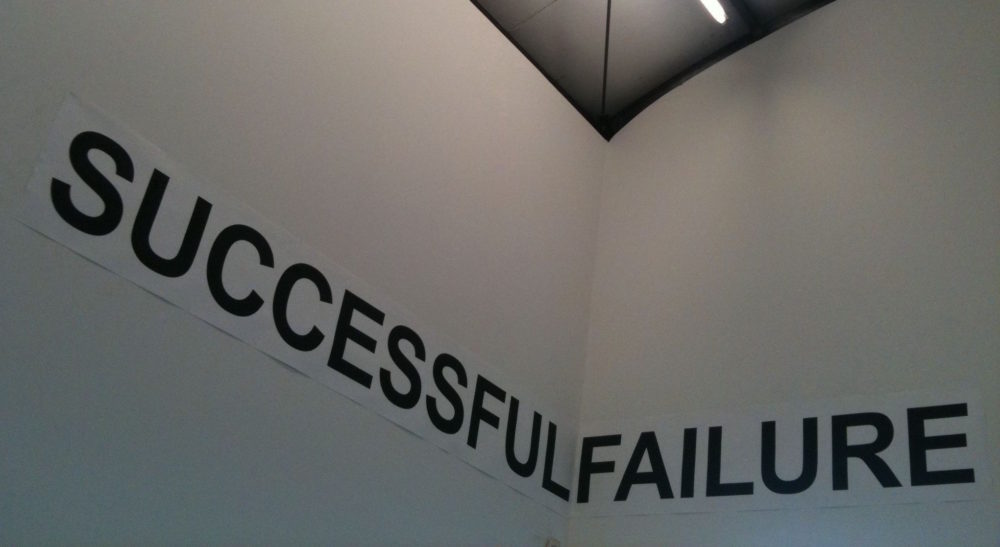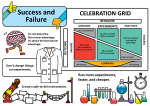Success and Failure - The Celebration Grid

Successes and Failures are Illusions
In my talks around the world, I emphasize the need to run management experiments and I offer examples of interesting ideas that worked well for my team. Of course, with so many events per year, it was inevitable that someone would ask me, “What is your least successful experiment?”
I had to think about that for a moment and I had difficulty coming up with examples. That was strange, I thought. According to information theory, we learn most when roughly half of our experiments fail. When I’m able to name a good number of ideas that work, and I’m not able to list ideas that don’t work, does that mean that my learning process is suboptimal? That would be a reason for concern!
When I thought about it, I realized that, at least for me, success and failure are temporary statuses and I perceive them both with an optimistic mind. I have plenty of ideas that work for now, and I have a lot of ideas that don’t work yet. This means that, when you ask me about a successful experiment, I will happily share with you something that is successful now, knowing quite well that it may turn into a failure later. Likewise, when someone asks me about a failure, I have difficulty producing examples because I’m not considering the ideas that aren’t working yet as failures. They often just need more time, adaptation, and customization to make them work.
In other words, for my long-term optimistic brain, half of the experiments succeed and the other half will succeed later. I’m sure there are people with a negative mindset who would turn it all around: Half of the experiments fail and the other half will fail tomorrow. (My short-term pessimistic brain often works like that: “Nothing works, and even if something works, it breaks when I start using it.”)
Successes and failures are convenient illusions. They are judgement calls of the human mind, subjective evaluations of the consequences of our actions. Outcomes can be observed by anyone but successes and failures exist only in the eyes of the beholder.
Photo: (C) 2010 Paul Keller, Creative Commons 2.0




